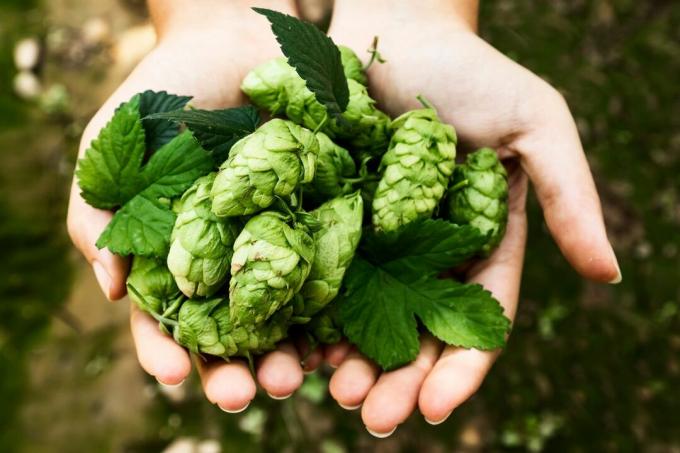Not all beer is created equal. This is due to the great variety of flavors of the different hop varieties, to which a huge fan base is dedicated.

There is a large number of different types of real hops (Humulus lupulus) available. Every conceivable taste seems to be covered. The spectrum of aromas ranges from "flowery" to "fruity-sweet" to "menthol", the taste note can be spicy, woody or earthy. The large group of hop varieties is divided into two main groups. The affiliation is determined by the content of alpha acids. Bitter hop varieties have an alpha acid content of over 10%. Aromatic hop varieties, on the other hand, contain less than 10% alpha acid. Although this reduces the bitterness of the hops, it also results in a higher concentration of essential oils. Depending on the aroma composition, the essential oils of the aroma hop varieties contribute to their own special taste notes. An entire scene is devoted to the aromatic diversity of hops. Hobby brewers and small breweries create beer specialties with an overwhelmingly fruity aroma that make you forget the traditionally bitter hop juice. The variety and taste seems to grow infinitely. The most important bitter and aromatic hop varieties in commercial cultivation are now called by name below:
Bitter hop varieties:
- Nugget: This classic is characterized by strong growth and high cone yield. Despite the low requirements, this variety is very susceptible to disease and is therefore increasingly being replaced by new varieties.
- Target: In addition to being very undemanding in terms of soil requirements, this variety impresses with its low susceptibility to powdery mildew. The beautiful, closed umbels are striking.
- Hallertau Magnum: This variety with a high bitter content is characterized by vigorous growth. The large umbels and leaves are very decorative.
- Northern Brewer: Although this precocious variety is less productive, it contains many important bitter substances.
Aromatic hop varieties:
- Hersbrucker: A traditional variety that impresses with its spicy aroma with an overall very good aroma.
- Hallertauer medium early: This old variety is still popular in cultivation thanks to its aroma. In addition, it stands out due to its large, dark green leaves and its overall extremely aesthetic growth.
- Centenniel: This variety is very popular in the USA and has an aroma reminiscent of beetroot and berry fruits. The mix with a woody note is characteristic.
- Citra: This aromatic variety with a high recognition value impresses with its diverse fruity aroma. Lovers will recognize them in the beer even after the brewing process.
- Amarillo: A rather mild variety with a moderate aroma, but sweet and at the same time spicy fruit note.

Another breeding goal for the aroma and bitter hop varieties used in commercial cultivation is to create smaller but high-yielding varieties. Machining the culture could be made immensely easier.
For private hobby growers, special varieties are of particular interest for cultivation in their own garden. Their peculiarity is mostly undemanding in terms of soil properties as well as shorter shoots.
Special varieties:
- Billbo: Due to the extremely low content of bitter substances, this variety is of no interest in the art of brewing, but is ideal for the preparation of teas.
- Comet: Very showy and ornamental variety with light green to yellow foliage and large umbels.
- Gimmli: The shoots of this “dwarf” variety reach a length of only 4 m when attached. This makes it more suitable for growing in pots or containers than its strong-growing relatives. In addition, the resistance to powdery mildew makes cultivation in the home garden more pleasant.
Thanks to the large number of different types of hops, you can create a real taste experience in your own garden. However, if you want to try your hand at brewing beer with your own hops, you should make sure that you only grow female plants. You should therefore play it safe and buy female young plants from specialist retailers or propagate your plants using cuttings according to their variety. When sowing, you can never be sure whether it will be a woman or an unwanted man.
Like you in your own garden Growing hops can be found in our special article.



